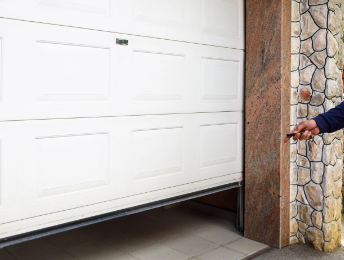5 Reasons Your Garage Door Won’t Close and How to Fix Them
Published: Nov 4, 2025
It’s frustrating when your garage door won’t close, especially if you’re in a hurry. You press the remote and the door drops a few feet, then suddenly reverses. That’s often a safety feature at work. The most common cause is a garage door sensor problem, though other issues are possible. This guide from Up & Down Garage Doors outlines five common reasons a door won’t shut and the quick fixes you can try first. We’ll start with simple checks and show you when it’s time to stop and call a professional.
Quick Safety & Tools
Before starting any garage door opener troubleshooting, unplug the opener. If it’s hardwired, switch off the matching breaker and verify power is off. Keep people and pets clear of the doorway. Never touch torsion springs, cables, or bottom brackets, as these parts are under high tension. For the checks below, have a soft microfiber cloth, a small level, a flashlight, a fresh remote battery, and a step stool or ladder ready. If anything feels unsafe, stop and call Up & Down Garage Doors for professional garage door repair.
Reason 1: Photo-Eye Sensors Are Dirty, Misaligned, or Faulty
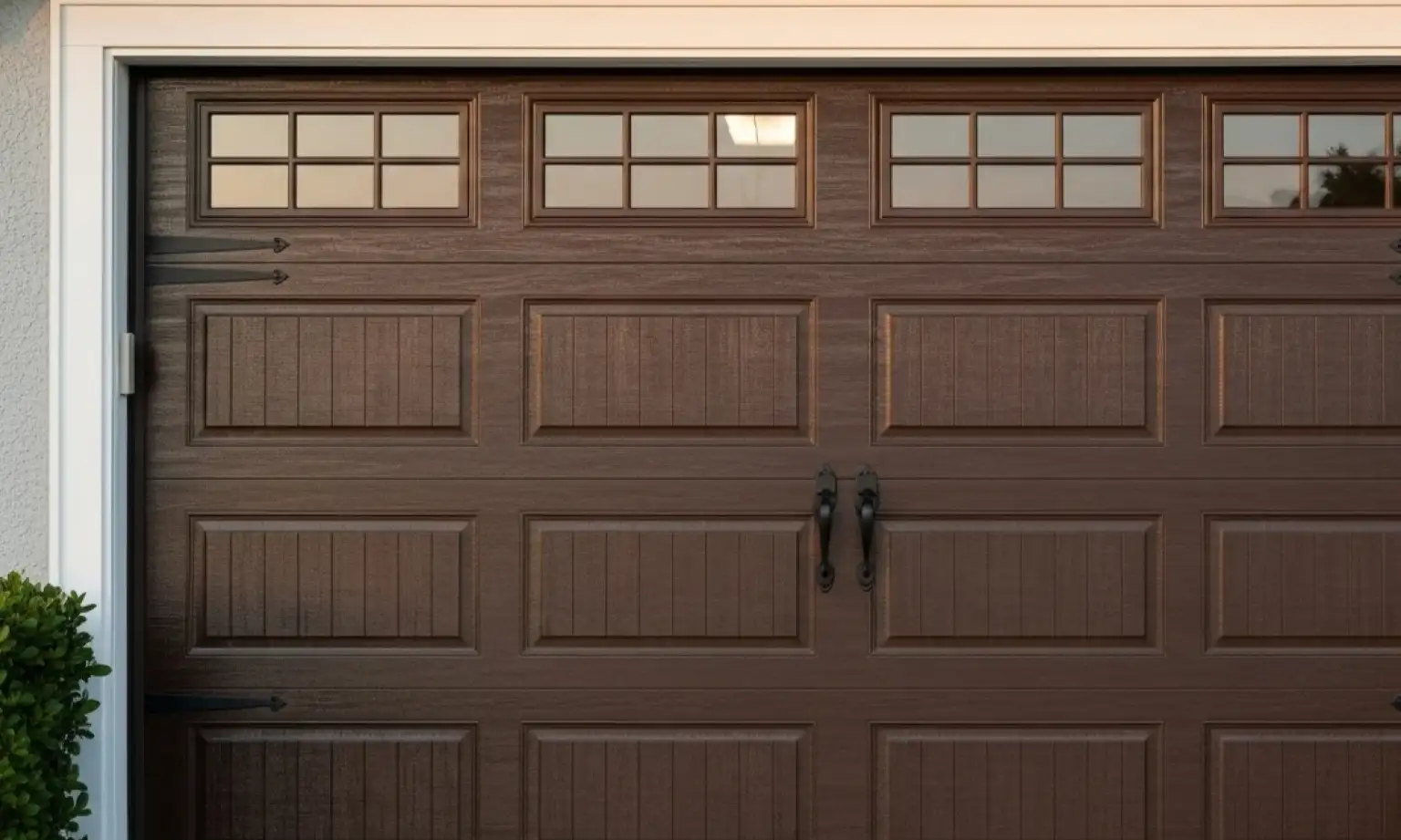
This is the top reason a garage door starts to close then goes back up. The photo-eye sensors—two small boxes about 6 inches off the floor—must create an invisible beam. If the beam is interrupted or the sensors are misaligned, the opener reverses. On many units, if a garage door won’t close, a blinking light pattern (often 10 flashes) signals a sensor fault. If you’re unsure how to fix garage door sensors, start with a gentle clean and alignment before checking the low-voltage wires.
- Wipe the sensor lenses with a soft cloth. Cobwebs or dust are common culprits.
- Gently adjust the sensor brackets until both sensor lights (one green, one amber/red) are solid. Use a level to make sure the heads point directly at each other. For detailed steps, see how to align garage door sensors.
- Check for visible damage on the thin sensor wires running to the opener.

Reason 2: Track Obstruction or Door Binding
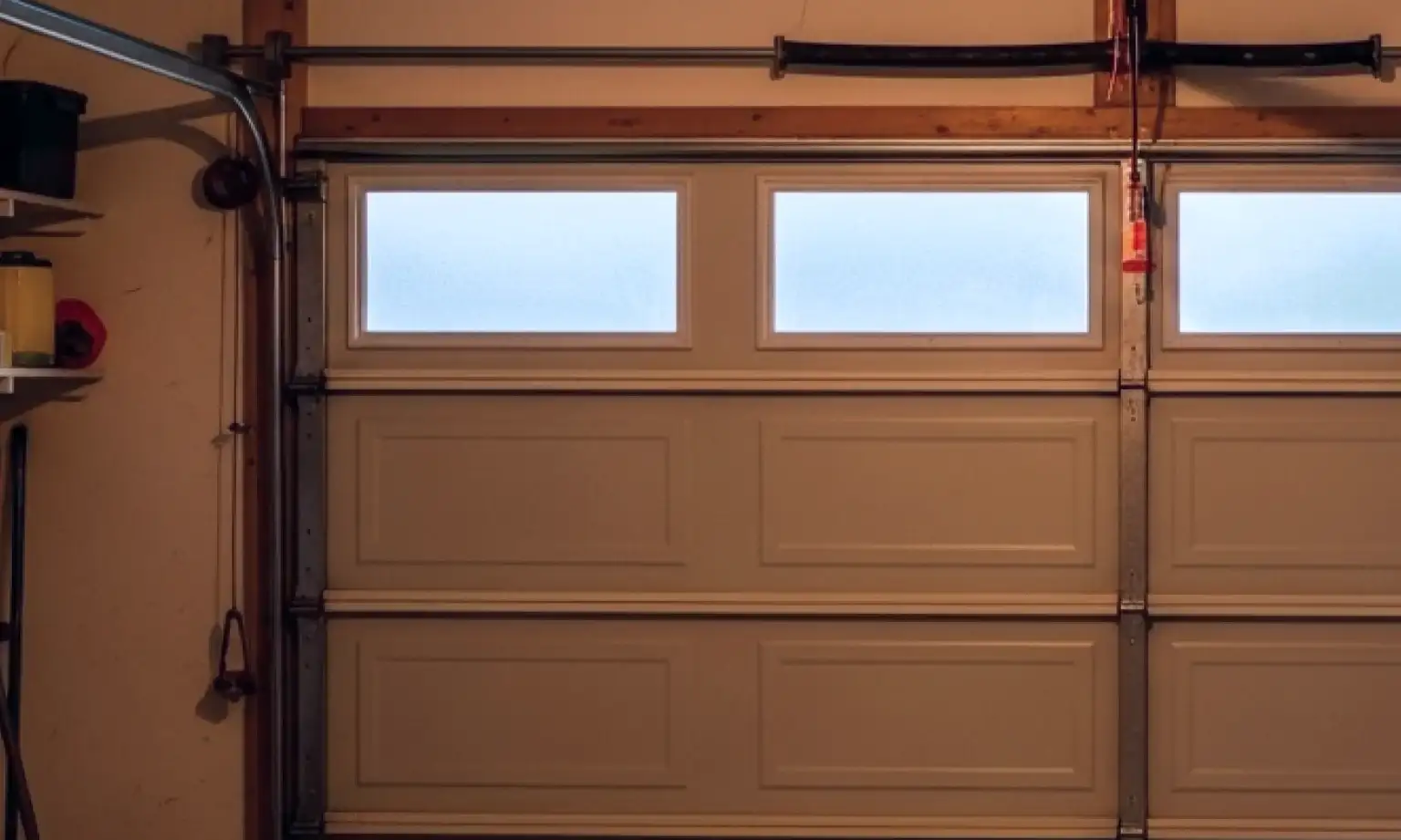
If the door stalls partway or your garage door won’t close all the way and leaves a gap, look for a physical snag first. A broom handle, a kid’s ball, or a slightly bent track can stop the door and make the opener think there’s an obstruction.
Also, check the vertical tracks for damage or binding. In winter, a frozen bottom seal can also trick the opener into thinking it hit an obstacle. Clear the path, wipe the tracks, and tighten obvious loose fasteners you can reach safely.
If the door is scraping, rollers are jumping, or the track looks bent, stop. Binding can escalate into an off-track door. Seeing a bent section or an off-track roller? Skip DIY and book emergency garage door service with Up & Down Garage Doors.

Reason 3: Opener Settings
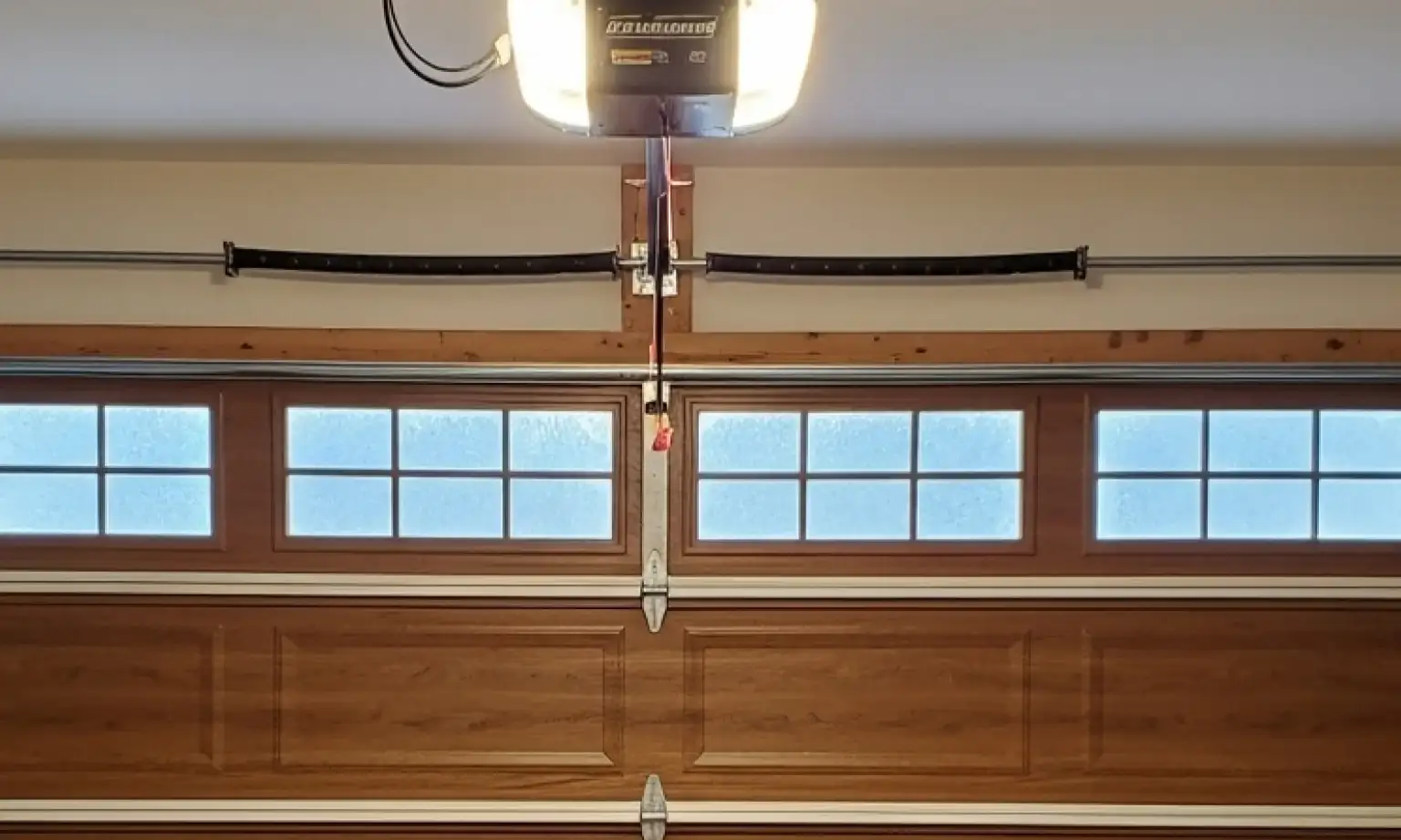
Check your wall control panel. If the Lock or Vacation button is on, it disables remotes. Turn it off if the light above the lock icon is lit.
The issue could also be the opener’s travel limits. If the door hits the floor and reverses, the opener thinks the floor is an obstruction. Make small, careful adjustments per the manual.
If settings drift back, the door still reverses, or the unit behaves erratically, it’s time for garage door opener repair. Up & Down Garage Doors can recalibrate travel, test the safety circuit, and replace failing logic boards or limit switches.

Reason 4: Remote/Keypad Issues
If the garage door won’t close with the remote but works from the wall button, the remote is the problem. Try replacing the battery first. If that fails, you may be out of range, or the opener’s antenna wire (small hanging lead) isn’t tucked up or blocked by metal shelving. The remote may also need reprogramming. You might need to reset the garage door remote. If reprogramming fails, schedule garage door repair to check the opener’s receiver and wiring.
Reason 5: Broken Springs or Cable Problems (Do Not DIY)
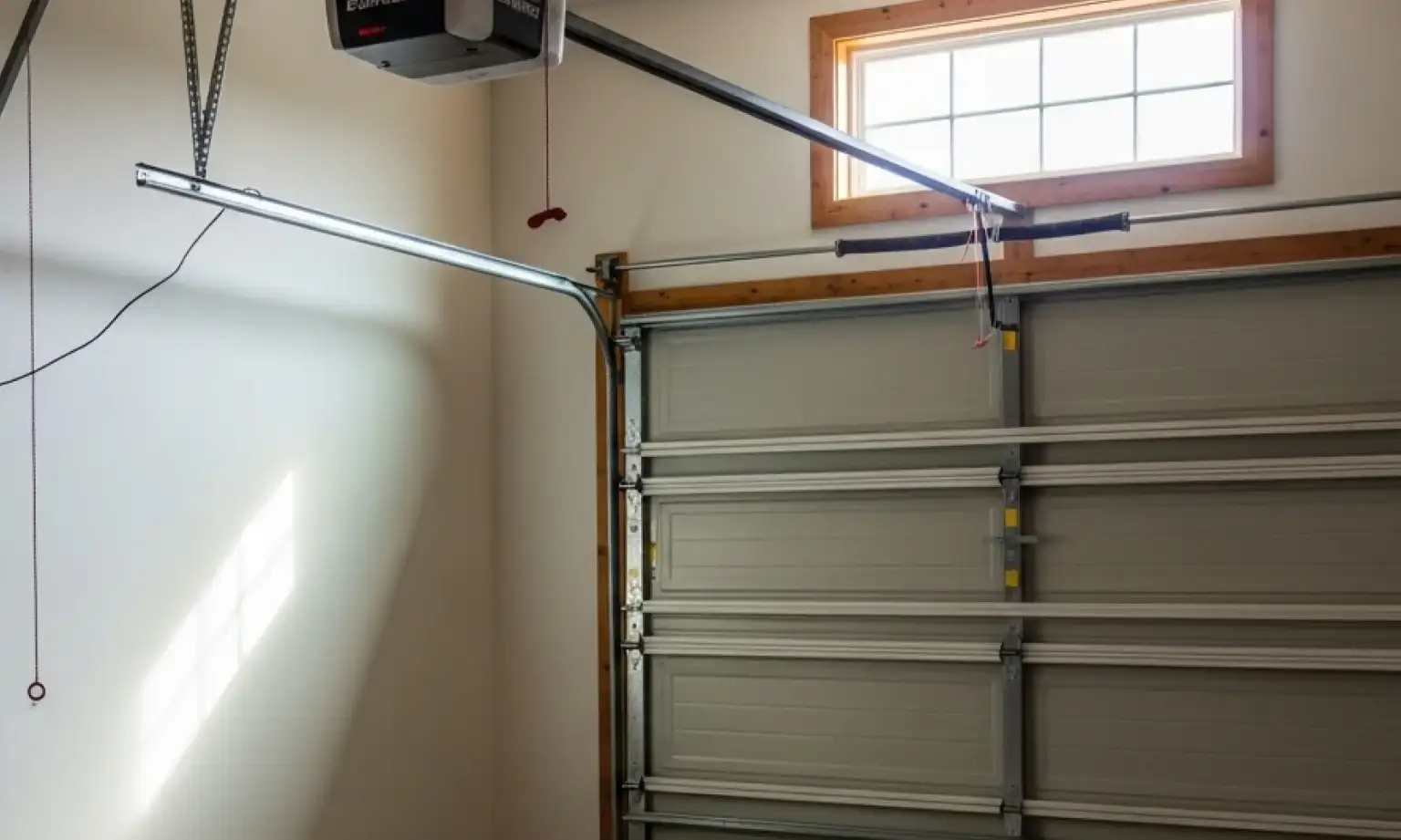
If the door slams shut, hangs crooked, or is very heavy, stop. Look (do not touch) above the door for the garage door springs. A broken torsion spring will have a 2–3-inch gap in the coil. Slack cable on the drum or frayed strands are also major red flags. The opener cannot lift the door’s full weight (often 150–300 lb) without the spring’s assist.
What to do? Don’t force the door or pull the red emergency release under load. Keep the area clean and go straight to professional garage door spring repair. Up & Down Garage Doors replaces springs and cables with the correct wire size, cycle rating, and balance so both sides lift evenly and safely.

Need more information?
Get a free quote
When to Call Up & Down Garage Doors
When a garage door won’t close, the issue is often a simple fix, like cleaning the photo-eye sensors. However, if you’ve tried these troubleshooting steps or suspect a mechanical issue like a broken spring, don’t risk it. Contact the professionals at Up & Down Garage Doors. We handle everything from sensor alignment and opener repairs to emergency spring replacement — so your door runs safely and reliably again.
Frequently Asked Questions
Why does my garage door start to close then go back up?
This is almost always a safety sensor issue. The photo-eyes are misaligned, dirty, or blocked. Check for obstructions, clean the lenses, and make sure both sensor lights are solid.
Why is my garage door opener light blinking 10 times?
A blinking light on the motor unit is an error code. For most brands, 10 blinks specifically indicate a problem with the photo-eye safety sensors. Check their alignment and cleanliness.
How do I fix my garage door sensors?
To fix garage door sensors, first clean the lenses. Then, check alignment. The sending and receiving eyes must point directly at each other. Gently adjust the brackets until both sensor lights are solid and not flickering.
You may also like
